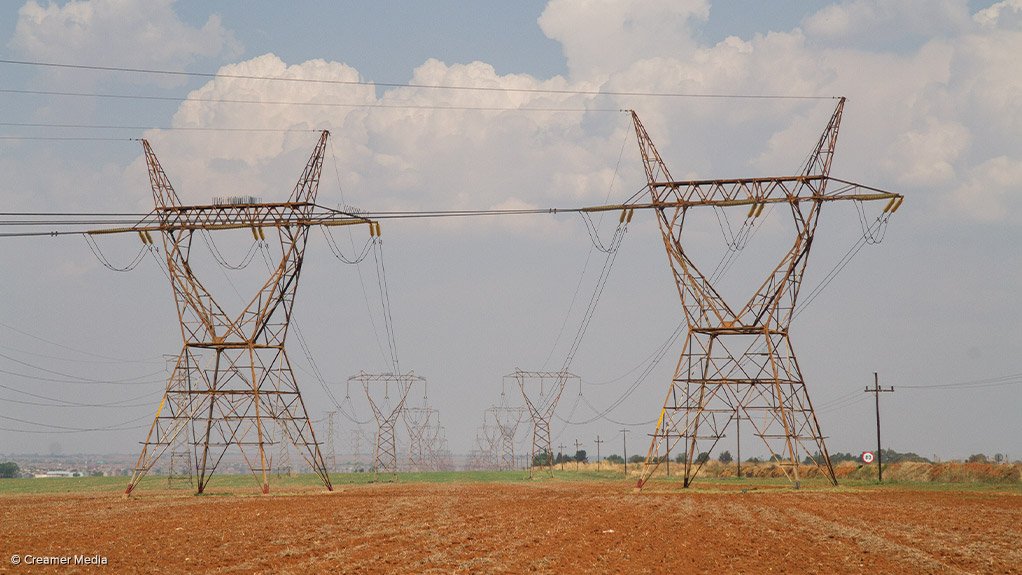South Africa is "still in the foothills of economic recovery" and, while external influences must still be skillfully navigated, the country's future economic performance will hinge mainly on domestic policy decisions that maintain a macroenvironment that is efficient, stable and consistent for investment and job-rich growth.
This is the main message of the North-West University Business School’s Policy Uncertainty Index (PUI) for the fourth quarter, with the PUI unexpectedly rising much further into negative territory to 65.7, compared with 53.5 in the third quarter of the year, said NWU Business School Professor Raymond Parsons.
"We must not underestimate the impact of the disappointing third-quarter GDP growth figures, which highlighted the extent to which, even with the bad agricultural figures stripped out, the rest of the economy remained in a slow and uneven cyclical upswing.
"GDP growth is now projected to only be about 0.6%, instead of around 1%, in 2024, and about 1.6% next year. Having to further trim already modest growth prospects is not welcome news, given South Africa’s well-known socioeconomic challenges," he said.
Further, the loss of exports reflected in the third-quarter growth figures suggested that logistical networks, namely transport, are still not performing well and are still weakening business’s global competitiveness.
In 2025, South Africa also needs to be seen to begin resolving its water supply problems. Also, although the risks of loadshedding have receded, there remains Eskom’s large tariff application for 2025 and subsequent years and their implications for the costs of doing business in South Africa, the PUI report pointed out.
Additionally, fixed capital formation is a lagging indicator. A recent survey showed that South African corporate companies have been extremely cautious so far when investing in their local operations.
Another survey of capital expenditure (capex) project listings for August 2024 indicated that the pickup in capex plans identified in 2024 would likely materialise in 2025, although there remained risks to the outlook.
"Fixed capital formation, especially in a slow and uneven economic recovery, inevitably means that the resumption of major fixed investment will take longer depending on the rate at which the markets are expanding to absorb existing spare capacity, and the success of the country’s efforts to attract new investment capital and become a preferred investment destination," Parsons said.
SHORT- TO LONG-TERM
The challenge now is to build on the better short-term business confidence and convert it into long-term investor confidence. Short-run optimism must be transformed into long-run commitments to underpin sustained economic growth, he noted.
"Even in the face of heightened policy uncertainty, positive business decisions are still possible. However, while there is obviously an overlap, the factors shaping business confidence are not identical to those driving the level of investor confidence.
"Research confirms that when policy uncertainty from any level is generated in the aftermath of elections, it encourages private actors to delay, in particular, investments that entail high costs of reversal," he highlighted.
Globally, global monetary organisation the International Monetary Fund and other surveys project world economic growth at about a steady 3.3% performance next year, similar to 2024.
"For now, the world economy therefore remains broadly supportive of the domestic economy. However, geopolitical conflicts and trade tensions, such as may emerge from a US Trump administration, have the potential to generate persistent uncertainty and disrupt world trade and finance," Parsons added.
As a small, open economy, South Africa has a deep vested interest in a rule-based multilateral trading system. The challenges and threats to the multilateral trading system will therefore no doubt be the subject of renewed economic diplomacy and negotiation in the period ahead, including by South Africa.
"In the meantime though, key global financial institutions have increasingly urged countries that a good mix of elements to build domestic economic resilience, such as a credible policy framework, adequate macroprudential policies, minimal fiscal vulnerability, and increased diversification, which will also help to mitigate the impact of rising global economic uncertainty," Parsons pointed out.
Meanwhile, several developments testify to the country's incipient economic recovery in recent months, he said.
Inflation has recently steadily wound down and the South African Reserve Bank (SARB) expects it to converge next year on the mid-point of 4.5% within its 3% to 6% target range. The Monetary Policy Committee reduced interest rates at its last couple of meetings this year.
The SARB’s Quarterly Projection Model indicates further rate cuts of 75 basis points in 2025. This suggests three reductions of 25 basis points each in the first half of next year, thus easing borrowing costs for business and consumers respectively, Parsons noted.
The operational environment for the economy has also been strengthened in recent months, in particular by the cessation of Eskom loadshedding and the promise of greater energy security. This has, in turn, helped to significantly boost business and consumer confidence.
The SARB recently pointed out that currently, household spending, meaning consumption, ‘is doing most of the heavy lifting’ in South Africa's improved growth prospects, he highlighted.
There have also been recent more positive outlooks on the credit rating front for South Africa by the major rating agencies.
"Compared with 12 months ago, 2025 therefore generally promises to be a relatively good economic year for South Africa, driven by the expectation that economic and political tailwinds will outweigh any headwinds.
"Next year offers South Africa both great opportunities and risks. To further build credibility and strengthen investor confidence in 2025, the stamp of authentic leadership must run like a golden thread through future government of national unity Cabinet decisions."
EMAIL THIS ARTICLE SAVE THIS ARTICLE ARTICLE ENQUIRY FEEDBACK
To subscribe email subscriptions@creamermedia.co.za or click here
To advertise email advertising@creamermedia.co.za or click here











